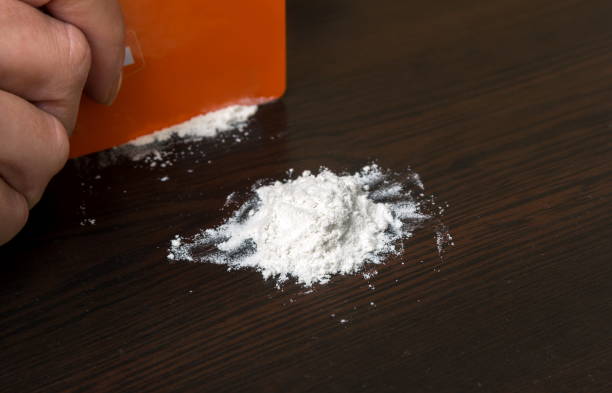Is There Still Time to File a Talcum Powder Lawsuit?

Talcum Powder Lawsuits: What You Need to Know?
Talcum powder has been a staple in personal care products for decades, but recent studies and lawsuits have raised concerns about its safety. Many individuals have filed lawsuits against manufacturers, alleging that talcum powder use led to serious health issues like ovarian cancer and mesothelioma. If you’re wondering, Is There Still Time to File a Talcum Powder Lawsuit?, this guide will help you navigate the legal landscape, understand filing deadlines, and take the necessary steps to protect your rights.
Ready to connect with top legal professionals? Get immediate support— Call us at 877-550-8911.
The Link Between Talcum Powder and Health Risks
Talcum powder, made from the mineral talc, has been widely used for its moisture-absorbing properties. However, research suggests that prolonged use, especially in the genital area, may increase the risk of ovarian cancer in women. Additionally, talc contaminated with asbestos has been linked to mesothelioma, a rare and aggressive form of cancer. Common symptoms and health risks associated with talcum powder include:- Respiratory Issues: Inhalation of talc particles can cause lung irritation, particularly in infants and individuals with pre-existing respiratory conditions.
- Skin Irritation: Prolonged use may lead to rashes or irritation in sensitive areas.
- Cancer Risks: Studies indicate a potential connection between talcum powder and cancers such as ovarian, lung, and cervical cancer.
Is it still time to enter a talcum powder case?
One of the most pressing questions for potential plaintiffs is whether they can still file a lawsuit. The answer depends on the statute of limitations in your state, which typically ranges from one to six years from the date of diagnosis or discovery of the injury. Missing this deadline can result in losing your right to seek compensation. Here’s why timely action is critical:- Evidence Preservation: Fresh evidence, such as medical records and product packaging, can strengthen your case.
- Witness Availability: Over time, witnesses may forget details or become unavailable.
- Financial Recovery: Delays can exacerbate financial strain caused by medical bills and lost wages.
- Legal Strategy: Early action allows your attorney to build a robust case.
Key Factors Affecting Filing Deadlines
Several factors influence the timeline for filing a talcum powder lawsuit:- State Laws: Each state has its own statute of limitations, which dictates how long you have to file a claim. For example, some states allow up to six years, while others may limit the timeframe to just one year.
- Date of Diagnosis: The clock typically starts ticking from the date you were diagnosed with a condition linked to talcum powder use.
- Discovery Rule: In some states, the filing period may begin when you discover the connection between your health issue and talcum powder, rather than the date of diagnosis.
- Type of Claim: Whether you’re filing a personal injury, wrongful death, or class action lawsuit can also affect deadlines.

Navigating the Legal Process for Talcum Powder Claims
Filing a talcum powder lawsuit involves several steps, and having an experienced attorney by your side can make the process smoother. Here’s what to expect:- Initial Consultation: Your attorney will evaluate your case during a free consultation to determine its viability.
- Evidence Gathering: You’ll need to provide medical records, proof of talcum powder usage, and documentation of your health issues.
- Filing the Lawsuit: Once the evidence is compiled, your attorney will file the lawsuit in the appropriate court.
- Discovery Phase: Both parties exchange information, which can take several months.
- Settlement or Trial: Many cases settle out of court, but if no agreement is reached, your case may go to trial.
What to Expect After Filing a Talcum Powder Lawsuit?
Once your lawsuit is filed, the legal process unfolds in several stages:- Notification to Defendant: The manufacturer or defendant will be notified and given time to respond.
- Discovery Phase: Both sides gather evidence, including medical records, expert testimonies, and product usage history.
- Settlement Negotiations: Many cases are resolved through settlements, which can save time and legal expenses.
- Trial: If a settlement isn’t reached, your case may proceed to trial, where a judge or jury will make a final decision.
Consulting with a Legal Expert: Your Next Steps
If you’re considering a talcum powder lawsuit, consulting a legal expert is the first step. Here’s what to expect during your consultation:- Statute of Limitations: Your attorney will explain the filing deadlines in your state.
- Evidence Collection: They will help you gather necessary documentation, such as medical records and product usage history.
- Potential Compensation: Discuss possible damages, including medical expenses, pain and suffering, and lost wages.
- Legal Fees: Most attorneys work on a contingency basis, meaning they only get paid if you win your case.
FAQs
1. What health risks are associated with talcum powder? Talcum powder has been linked to ovarian cancer, mesothelioma, respiratory issues, and skin irritation. 2. How long do I have to file a talcum powder lawsuit? The statute of limitations varies by state, typically ranging from one to six years from the date of diagnosis. 3. What evidence do I need for a talcum powder lawsuit? Medical records, proof of talcum powder usage, and documentation of your health issues are essential. 4. Can I still file a lawsuit if I was diagnosed years ago? It depends on your state’s statute of limitations and the discovery rule. Consult an attorney to determine your eligibility. 5. What compensation can I expect from a talcum powder lawsuit? Compensation may cover medical expenses, pain and suffering, lost wages, and other damages.Don’t wait to secure the legal representation you deserve. Visit Legal Case Review today for free quotes and tailored guidance, or call 877-550-8911 for immediate assistance.


